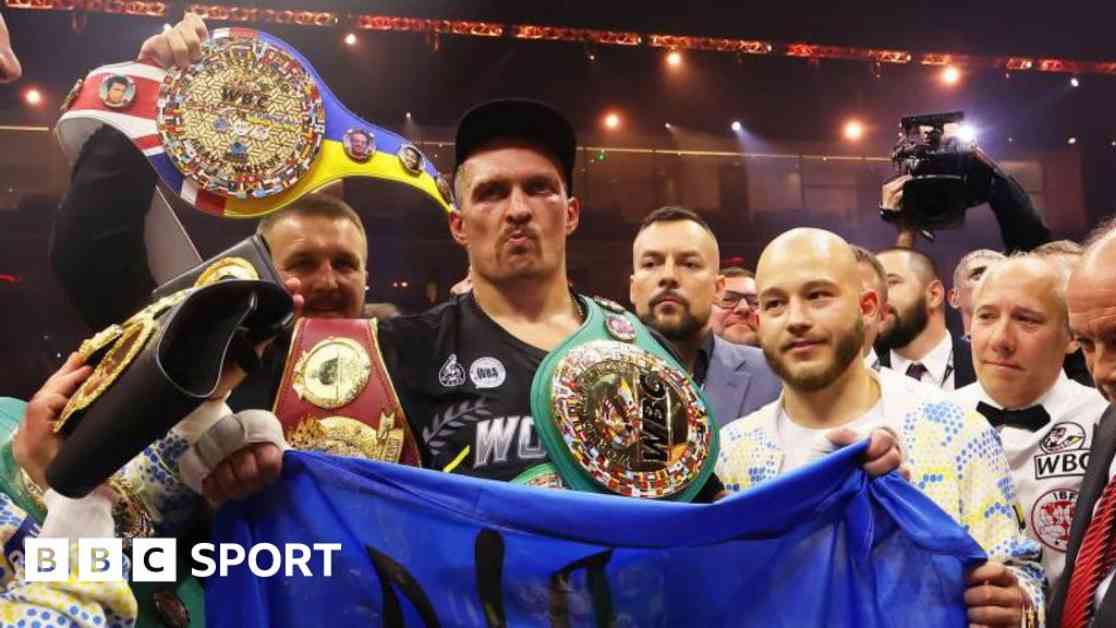We’ve been waiting for nearly 25 years to see an undisputed heavyweight champion. Oleksandr Usyk reached the top and now the IBF is considering taking away his belt. The IBF’s rule states that they must strip Usyk if he doesn’t fight their mandatory challenger next, who happens to be Daniel Dubois.
It may seem unfair to strip Usyk of his belts, but this is the way the IBF operates. The idea of having mandatory challengers was a good one back in 1956 when there was only one sanctioning body. However, with four different recognized sanctioning bodies and multiple champions, the concept of mandatories has lost its significance.
The IBF has a history of putting itself in tough situations like this. In 2015, Czar Glazkov was the number one contender, and when Tyson Fury became the unified champion, the IBF quickly arranged a title fight between Glazkov and Charles Martin after stripping Fury of the belt.
The current situation between the IBF and Usyk is not just a simple disagreement. It represents a larger power struggle between boxing and the sanctioning bodies. The way boxers are ranked is based on negotiations and deals made at annual conventions, rather than actual in-ring performances.
Sanctioning bodies are essentially businesses that aim to make a profit. They have been facing tough times recently, with only one heavyweight world title fight in 2023. They are looking to capitalize on big fights like Dubois vs. Joshua rather than waiting for Usyk’s rematch against Fury.
Dubois vs. Joshua doesn’t necessarily need the IBF title on the line to be a successful fight. However, this situation highlights the ongoing battle between boxing’s power players and the sanctioning bodies who are trying to maintain control.
There is a proposed boxing league that could potentially change the landscape of the sport. This league would feature the top fighters competing regularly against each other, without the interference of sanctioning bodies. This idea poses a threat to the established order in boxing.
The prospect of a boxing league is intriguing as it would eliminate the need for sanctioning bodies and their complex rules. It would allow fighters to compete based on merit rather than politics. The sanctioning bodies are aware of this potential shift and must decide whether to adapt or risk becoming obsolete.
In order for a boxing league to be successful, it would require cooperation among promoters, fighters, and other stakeholders in the sport. A unified front is essential to challenge the dominance of the sanctioning bodies and create a more transparent and competitive boxing landscape.








